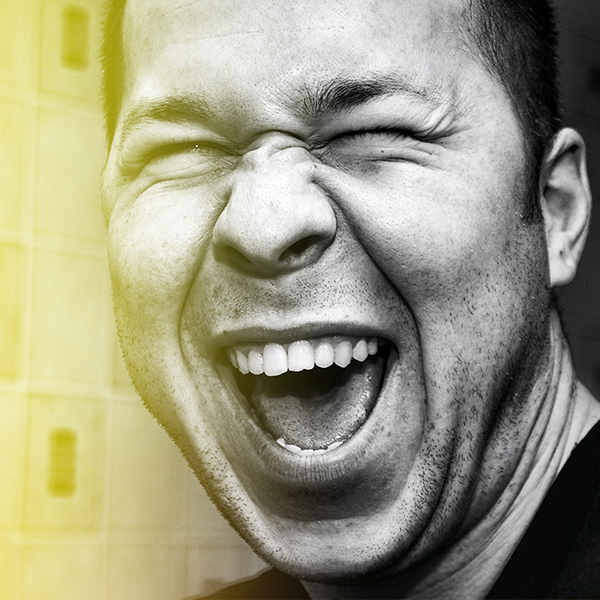Emotions and Leadership: Unseen Emotional Labour in Leadership

Leadership isn’t just about strategy, metrics, and making the tough calls. It’s also deeply emotional, and yet, we don’t talk about that part enough.
From the outside, strong leaders often appear calm, steady, and in control. But beneath that composed exterior lies a complex emotional landscape – not only are they carrying people’s hopes, fears, and expectations, it could also be self-doubt, stress, empathy overload, and the weight of constant decision-making. That takes emotional maturity to deal with.
There’s a gap between how leaders are perceived and what they privately experience. And when an emotional load goes unacknowledged, it can quietly erode even the most seasoned professional’s energy, confidence, and wellbeing.
Let’s talk about the emotions and leadership, which we typically don’t talk about.
Emotional Labour: The Unspoken Tax on Leaders
We often think of emotional labour as something front-line or care-based roles take on. But for leaders, it’s just as real, just less visible.
Emotional labour in leadership looks like:
- Holding space during a company restructure when people are scared and uncertain, while managing your own anxiety about what's next.
- Being the buffer between your team and tough top-down decisions, delivering the message with empathy, even when you disagree with it.
- Keeping morale high, even as you privately question the direction, the resources, or your own ability to carry it all.
It’s the invisible tax leaders pay every day: showing up with emotional steadiness, often at the cost of their own processing time or wellbeing.
Over time, this internal strain can drain energy in subtle but powerful ways. You may find yourself going through the motions, becoming more irritable, less creative, or simply exhausted, but not able to pinpoint why.
That’s the cost of emotional labour. And when it’s unspoken, it’s easy to feel like you’re the only one struggling.
The Rise of Emotions and Leadership in a High-Stakes World
Emotional leadership is no longer a nice-to-have. It’s essential.
Gone are the days when authority was enough to inspire followership. Employees today expect leaders to be emotionally present and not just intellectually sharp. Especially in a post-pandemic era marked by hybrid work, rising mental health concerns, and a growing emphasis on psychological safety.
Leaders are now being called to be more than just decision-makers. They’re expected to lead with humanity, navigate ambiguity with grace, and create spaces where people feel safe, seen, and supported.
A 2024 study by The Straits Times on workplace mental health in Singapore found that 60% of employees say their wellbeing is directly tied to how supported they feel by their direct manager. Meanwhile, a McKinsey report on leadership in hybrid work cultures notes that emotional attunement is now a top driver of team engagement and retention.
Put simply, the world of work has changed. And leaders are being asked to change with it. To lead not just with their heads, but with their hearts.
Why Emotional Intelligence Is Now a Leadership Non-Negotiable
So, why is emotional intelligence important in leadership?
Because EQ – the ability to recognise, manage, and respond to emotions (your own and others’) – has a direct impact on performance, trust, and the health of your team.
Key components of emotional intelligence include:
- Self-awareness: Understanding your own emotional triggers, needs, and patterns.
- Empathy: Being able to tune in to others’ feelings and perspectives.
- Self-regulation: Managing stress responses in a healthy, constructive way.
- Social attunement: Reading the emotional undercurrents of a room or team and responding with sensitivity.
Research from TalentSmart shows that 90% of top performers have high EQs, while emotionally intelligent leaders are more likely to retain top talent and maintain team cohesion through change.
And no, EQ isn’t “soft.” It’s strategic. It’s what allows leaders to navigate tension, build trust, and sustain performance, not just in the good times, but in the hard ones too.

Burnout in Stoic Leaders: How Emotional Suppression Backfires
Many leaders have been taught, consciously or not, to suppress their emotions. To power through. To be the rock everyone can lean on.
But over time, emotional suppression comes at a cost.
When leaders continually put their own emotions aside, it can lead to:
- Disconnection: Feeling increasingly distant from your team and yourself.
- Cynicism: Losing the spark or sense of purpose that once made the work meaningful.
- Short tempers: Being quicker to snap, shut down, or make reactive decisions.
Some visible signs leaders might notice in themselves include:
- Constant exhaustion, even after rest.
- A sense of numbness or emotional flatness.
- Avoiding tough conversations to “keep the peace.”
- Feeling irritable or overwhelmed by minor setbacks.
These aren’t character flaws but are symptoms of emotional overload.
And when left unaddressed, they can lead to burnout. Not the kind that’s loud and dramatic, but the quiet kind that slowly wears you down until you’re just… going through the motions.
What Resilient Leadership Really Looks Like
We often think of resilience as pushing through. But real resilient leadership is more nuanced.
Sometimes, it means slowing down. Taking stock. Letting yourself feel what you need to feel. Asking for support instead of powering through in silence.
True resilience is about knowing what to do when you are.
This is where coaching can play a pivotal role. In a leadership coaching space, you’re not expected to have all the answers. You can process complex emotions, gain perspective, and learn practical tools to lead with clarity and integrity, even in uncertainty.
Coaching is more than just “fixing” you. It’s about supporting you so you can lead sustainably. So you can show up for your team and for yourself.
Conclusion: Make Space for Your Own Emotions Too
Emotions and leadership go hand in hand. There’s no getting around it.
And yet, so many leaders are conditioned to keep their own emotions on the back burner: to hold space for everyone else, while silently carrying their own load.
But you can’t lead effectively if you’re emotionally depleted. You can’t support others if you’re always suppressing what’s real for you.
So here’s a gentle prompt to end with: Who’s holding space for you?
If you’re a leader navigating change, feeling stretched, or simply needing room to reflect, coaching can help. At The Happy Mondays Co., we work with leaders who want to show up with purpose, presence, and power, without burning out in the process.
Explore our Leadership Coaching offering and let’s talk about what support could look like for you.



















